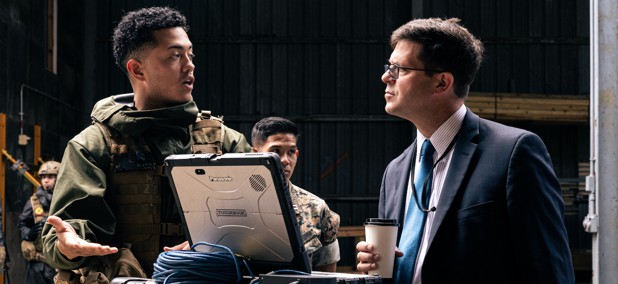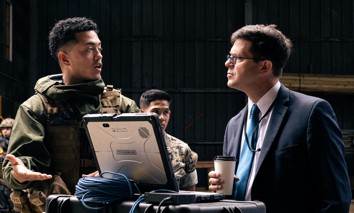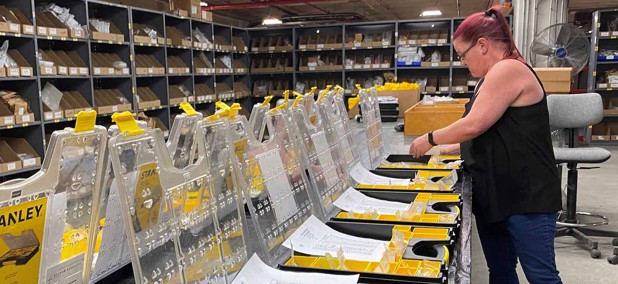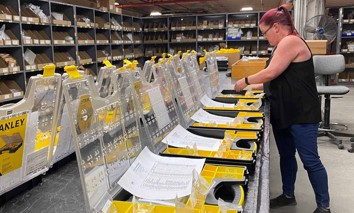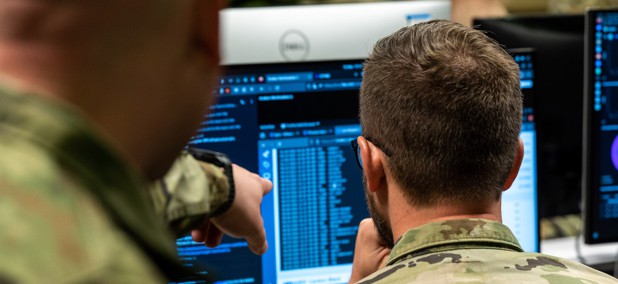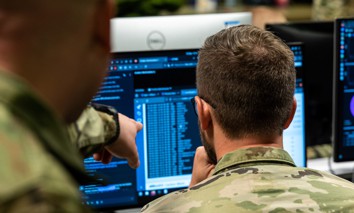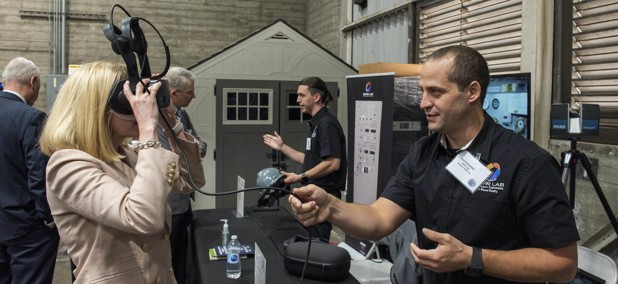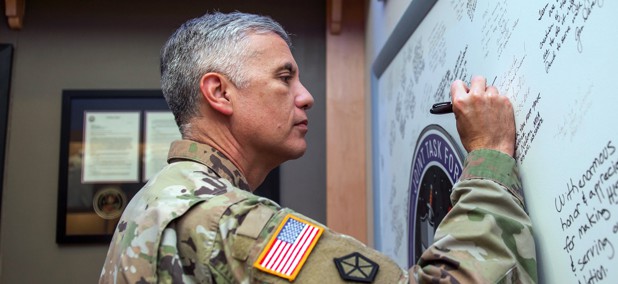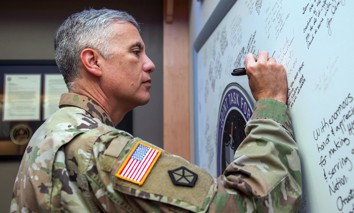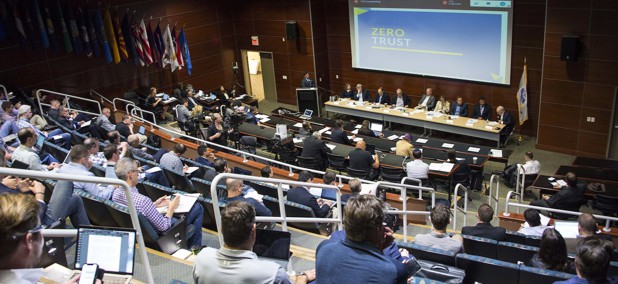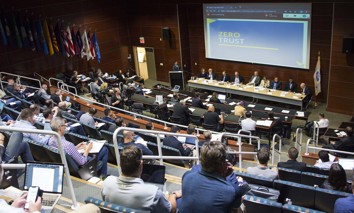Author Archive
Lauren C. Williams
Senior Editor

Lauren C. Williams is senior editor for Defense One. She previously covered defense technology and cybersecurity for FCW and Defense Systems. Before then, Williams has reported on several issues, including internet culture, national security, health care, politics and crime for various publications. She has a master's in journalism from the University of Maryland, College Park and a bachelor's in dietetics from the University of Delaware. She can be contacted at lwilliams@govexec.com or follow her on Twitter @lalaurenista.
Click here for previous articles by Williams.
Defense
The Pentagon wants to help boost cybersecurity for small contractors
A new strategy outlines how the Defense Department plans to increase security and strengthen relationships across the industrial base.
- By Lauren C. Williams
Defense
Can IT restore Congress’ trust in the Pentagon?
The Defense Department needs a better way to share budget data, a new report urges.
- By Lauren C. Williams
Defense
Navy leaders want more code-loving sailors at sea
One wants to take ad hoc data science efforts and fold them into a formal training cycle.
- By Lauren C. Williams
Defense
The Navy is building dashboards for its connect-everything effort
A conversation with Rebellion Defense about its new contract for Project Overmatch.
- By Lauren C. Williams
Defense
Some secret military programs are getting a little less secret
New classification guidance aims to streamline operations within the Pentagon and with foreign partners.
- By Lauren C. Williams
Defense
Pentagon unveils its long-awaited defense industry strategy
The first-of-its-kind document aims to address fragile supply chains revealed by a global pandemic and simultaneous international conflicts.
- By Lauren C. Williams
Defense
The Army wants smaller command posts. But first it needs great software
What’s missing is the ability to rapidly configure existing gear and networks to a given mission and environment.
- By Lauren C. Williams
Defense
The Army’s network is changing. But it still ‘needs work’
The service’s modernization chief said future war will be a conflict of systems where command and control will be central.
- By Lauren C. Williams
Cybersecurity
The 2024 defense policy bill has a lot of cyber
Other provisions touch on diplomacy and nuclear command and control, among other things.
- By Lauren C. Williams
People
Looking for tech talent? Broaden your search, IC chief says
The nation’s 18 intelligence agencies should look beyond the nation’s capital if they want to get and keep the best cyber workers, said Adele Merritt.
- By Lauren C. Williams
Emerging Tech
Only 3D printing can get the Navy’s submarine plan back on track, admiral says
U.S. cannot build and support the subs it needs “without going to additive manufacturing.”
- By Lauren C. Williams
Featured eBooks
Defense
How the war in Ukraine is reshaping US Army modernization
The rapid evolution of electronic warfare and drone tactics have the service tweaking its acquisition plans.
- By Lauren C. Williams
Artificial Intelligence
The CIA’s data-challenged AI imperative
Mastering the technology is key to being able to “disrupt those entities that do not,” said an agency cyber policy official.
- By Lauren C. Williams
Defense
Connect everything? Leaders need to get specific first
Hazy visions of data flowing seamlessly around the battlefield won’t get the job done, says the Air Force general for C2 systems.
- By Lauren C. Williams
Defense
Cyber on the battlefield is about more than IT
The Army successfully tested zero trust in a classified environment during a multinational military exercise.
- By Lauren C. Williams
Defense
Space Force needs more cyber operators for weapons systems, chief says
Protecting weapons platforms is a primary concern for Space Operations Command, says its vice commander.
- By Lauren C. Williams
Defense
Pentagon CIO prepares to take over 5G network portfolio
The plan is to build on existing test programs, like smart warehouses, while exploring new territory.
- By Lauren C. Williams
Artificial Intelligence
NSA ‘recently completed’ AI strategic study, director says
Outgoing chief Gen. Paul Nakasone looks back, forward, and pushes for Sec. 702 authority.
- By Lauren C. Williams
Defense
The Pentagon’s innovation arm has a new chief and a new strategy
‘DIU 3.0,’ now under SecDef review, aims to embed teams in the combatant commands.
- By Lauren C. Williams
Defense
Job 1 for makers of anti-drone defenses: write good software
Pentagon buyers are looking for control systems that are reliable, easy to use, and simple to update.
- By Lauren C. Williams








